Coven Film Festival 2021: Short Film Showcase Stuns
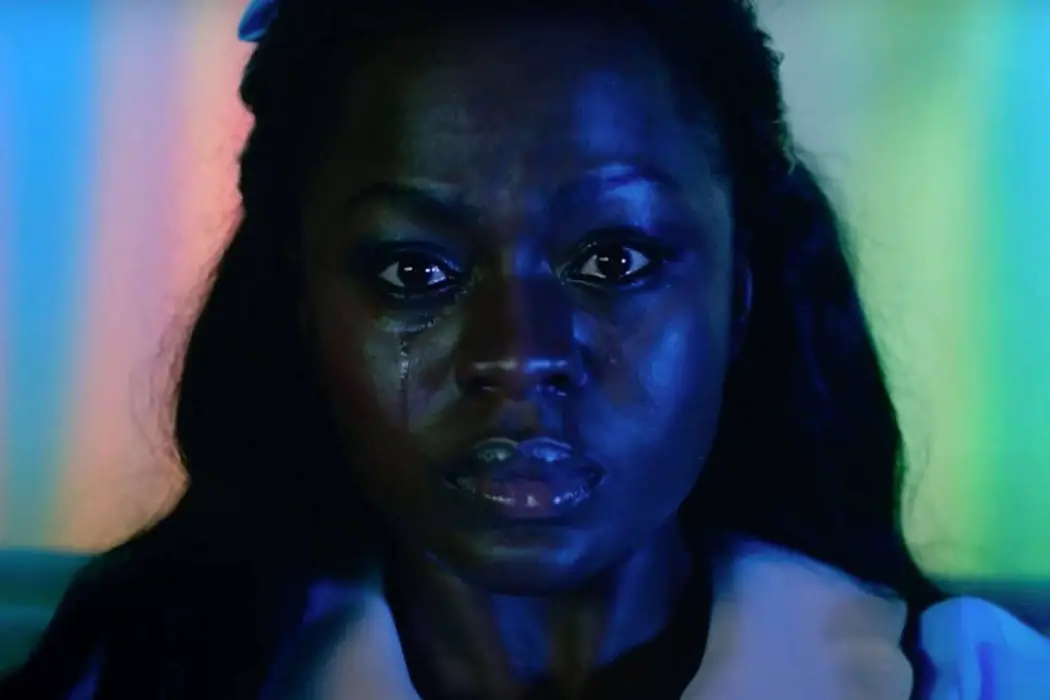
Stephanie Archer is 39 year old film fanatic living in…
For this year’s Coven Film Festival, the shorts shined in an emotional brilliance of success and emotion. Headlined by incredible female filmmakers to watch, the 2021 Coven Film Festival was not one to be forgotten.
Dame (Foster Wilson)
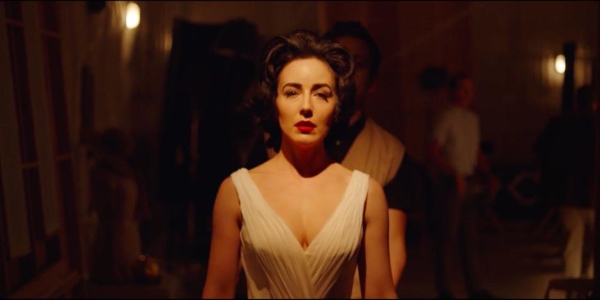
Dame, from writer and director Foster Wilson, is a beautiful snapshot of history, where strength in the face of adversity and lose endures. In 1958, Elizabeth Taylor’s husband died in a plane crash while she was filming an adaptation of the Tennessee Williams play Cat on a Hot Tin Roof. While she had taken a few weeks to grieve, she quickly returned to set, delivering one of the best performances of her career.
What is immediately riveting about Dame is the instant recognition that this is a short film about the late Elizabeth Taylor. You do not need to know what time period or what film she is on set for, you just know it is her. From costume to make up to the undeniable way that Grace Kendall encapsulates the essence of the Hollywood legend, there is no mistaking the film’s central figure.
What does take a moment to register is the time at which the short takes place, the backstory and insight not immediately provided to the audience. From the moment we see Taylor almost faint on set to her departure to her dressing room, we slowly see the stoic and solid facade melt away, grief and devastation rising to the surface. While she waits until she is alone for the release, the need for it is unpreventable, the warm yellow lighting of her sanctuary engulfing her in the comfort of the moment.
Yet, as grief stricken as she is, she rises, allowing a talisman of strength to support her. In a moment, she proves that sometimes our deepest moments of weakness and grief can be our greatest moments of strength, perserverence and success. And surrounded by the insensitivity and lack of empathy from the almost entire cast and crew of men, you can stand strong. For Elizabeth Taylor, it would be the defining moment of her career.
Single (Ashley Eakin)

The projection of disabilities and the inclusion of disabled actors within the Hollywood system is a hot topic – and for good reason. Time and time again, abled bodied actors are awarded for their performances on portraying a disability, Hollywood excluding those who are disabled from delivering authenticity and talent. Films like The Upside, starring Bryan Cranston, and Stronger, starring Jake Gyllenhal, have all fallen under criticism for their leading actors playing disabled roles. And while there is divisiveness within the industry on the subject, there is definitely a conversation happening and inclusivity emerging. A Quiet Place, Wonderstruck, and ABC’s Speechless casted actress Millicent Simmonds (who is deaf in real life) and Micha Fowler (who has cerebral palsy in real life) to fulfill the roles abled actors may have played in the past. The latest film to join these ranks is short film from writer and director Ashley Eakin, Single, about a one-armed woman on a blind date with another disabled individual.
Single brings actress Delaney Feener to the forefront, her performance and strength displaying there is more to a person that defines them than a disability. Feener‘s Kim is a badass who refuses to be defined by anything other than herself. Arriving one night to a local club, Kim plans on meeting up with a blind date her friend has set up for her. Up until this point, viewers have met the independent and resilient Kim, showing not only the challenges she has faced because of her disability but the means she has found to overcome them.
As she meets up with Jake, she discovers her friend has set her up with another disabled person, leaving a heavy unsaid weight in the air of the limitations and boxes disabled individuals are constantly placed within. As Kim attempts to wrap her mind around the insensitivity of her friend’s gesture, she attempts to slip away, Jake catching up to her. As she tries to avoid the evening and the set up, they each find themselves hanging out for the night, a brief moment of shared understanding and relatability – and a bit of egg bashing – providing each a momentary therapeutic reprieve. But as we learn, Kim does not apologize for her disability or for herself, and she does not accept pity. Rather, she is the strength we wish to find in ourselves.
We need more short films like Single. Films like this short are inspiring and uplifting, demanding a change of perspective while challenging the conversation – challenging an accepted form of behavior.
In Hollywoodland (Jessica Sherif)

In Hollywoodland, from writer and director Jessica Sherif, was by far my favorite short of the entire showcase. Vibrantly relevant and eye-opening, In Hollywoodland reimagines the classic fairy tale of Alice in Wonderland, its characters encompassing the Hollywood system in a critical critique of its design and the hostile environment it propagates. Utilizing the Agent Rabbit (Luke Youngblood), the Queen of Hearts, the Caterpillar and the Mad Hatter, In Hollywoodland delivers a digestible examination that feels not only whimsical but necessary.
Beginning with the simple command of “sit”, Zodwa (Yetide Badaki) waits patiently for what comes next. Dressed like Alice, blue bow in her hair and a name tag reading “Wonderland Diner”, Zodwa is seemingly plucked from the void of facelessness by the White Rabbit, told to hurray and that they “are late”. He rushes her on, pushing her to her audition, all the while encouraging her to change who she is, to adapt to the system – “change your name to something more digestible”. Before she can wrap her head around the haste, she is on stage in-front of a casting director named Queenie (Karen David), engulfed in red. She does not know her lines, or even has a handle on what is going on. “Off with their heads” the casting director cries, blaming her team for miscommunication, threatening further to “cut” the actress from consideration. While she worries for a moment, Zodwa is thrown deep into the dark end of the proverbial pool.
A bit out of sorts, she lands on a couch, a man named Donald Craps (Dominic Burgess) dressed in a robe slowing pulling on his smoking pipe, takes control of the reins, further breaking her down to fit the mold – his mold. “How will you remember your lines if you can’t remember my name?”. There is an eerie and off-putting nature to the lighting framing his face and body, Zodwa squeezed into the couch, almost cornered. There is nowhere for her to run, her lack of clarity and understanding further inhibiting her ability to react and respond. “How did I get here”, she asks. “We have all asked that at one point in Hollywood,” he responds, moving closer to her, overbearing and authoritative in his stance.
Whisked away, we find Zodwa meeting her final moment “before success”, a film director named Hatter (Jen Richards) demanding the seemingly impossible and never satisfied. Zodwa is asked to drink from a teacup, “no this way” or “that way”, but like she means to. As she tries to explain that she can’t, as there is celluloid film inside the cup, she is reminded all the greats have had to push through and is she wants to be something, she must figure it out. As she attempts this way and that, she is suddenly overwhelmed by the journey that has taken her to this point, no longer recognizing herself and no longer understanding how or why she got here. Thankfully, Zodwa wakes up.
In an instant, In Hollywoodland becomes not only a critical critique but an empowering hope for the future – both of the industry itself and the future talent that is yet to come. As Zodwa comes to, audiences witness her refusing to turn away from her dream, but rather breaking the perceived and designed normative path to success and creating her own route. As she pulls out her laptop, crafting a script by Norma Jean, the word “enough” finds new and deeply encompassing meaning. In an instant, the entire darkness of the short is replaced with the true fairy tale ending, inspiring audiences and artists to claim their story, space and artistic freedom.
Detach (Frankie Ingrassia)
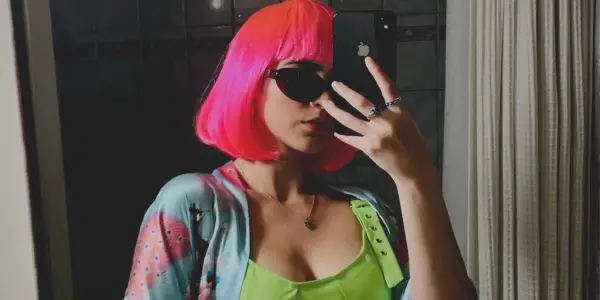
In a world of influencers, where the narrative is constantly being crafted and shared, there becomes an understanding that those we loyally follow may not be entirely who they seem – and the reality they have created nothing more than that, a creation. For mother and daughter, Detached, from writer and director Frankie Ingrassia, proves that illusions are not only crafted through the power of social media but in the lives affected by it.
As Detach opens, a young woman speaks to the camera, her live feed to her follows filled with pink hair and tears. Audiences are not immediately invited to understand her pain, but rather are enticed to look further into the video, and the life, of this young girl. Bringing viewers back to reality, we see daughter Sophia and mother Lola preparing for an evening out, trying on various clothes and sharing snapshots of their moments preparing. It does not take long to figure out their roles within the short, young Sophia a social media influencer and her mother not only making it possible but living vicariously through her daughter’s experience.
As time ticks by, the illusions become more and more apparent both in the separation fo mother and daughter and even in the appearances of both women – Sophia literally changing herself with the pink wig she sports for the digital world (one that calls drawbacks to the wig worn by Natalie Portman in Closer). Yet, as the various illusions begin to show themselves, what becomes more disturbing is the underlying sense of control and fear of losing it.
Lola and Sophia blur the lines of mother and daughter, displaying a relationship more akin to friendships than family. Yet, when Sophia begins to pull away, to try to break free of her mother, Lola lashes back, redefining the lines of mother and daughter, utilizing it against her. She is unable to let go of both Sophia and the world she has crafted for them. Sophia is unable to fully garner the control and take the necessary steps to adulthood, leaving the nest and breaking free. Instead, her skill of illusionary narratives gives her the power to elevate the power of the digital world over that of reality.
Detach is a vital look into not only the relationships of mother and daughter but also the illusion of reality. what we are delivered and edited to see is not always the truth. Yet, at the same time, Detach forces its audience to question what is reality if not the one we create for ourselves.
Egg Party (Kersti Bryan)
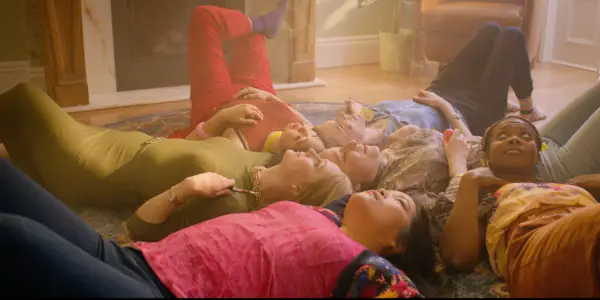
Egg Party starts off a bit kiddish, but this is far from a children’s short film. As it opens, the film scans a table as women bustle about crafting an innocence and euphoria, the soft lightening heightening the mood. Egg coloring kits, glitter glue, wine and a charcuterie board speak to the nature of the event six women have crafted for the day. Presented as a grown-up egg coloring girl’s day, a small dip into childhood speaks louder than words as intimate portraits of these women introduce audiences to their egg’s current status.
While the portraits are not immediate, audiences are given time to see the women interact with one another, when they are introduced they are humorous and relatable, speaking to the various journeys of each of the women. Heather’s egg is on the back burner, while Drea is a “all chicks”. McKenna is meh, Zee’s are free rangers and Janelle’s are ready when she is. Each of these women are given a different journey when it comes to their desired path of children and fertility, normalizing not only a women’s right to choose. How you “handle” your eggs and your egg’s journey is unique and all your own.
When the film reaches its final portrait, we learn that for Molly, she knows what path she wants, but is experiencing difficulty in obtaining it. As the film reveals, Molly bought the perfect mobile three years ago that has remained unopened, and Moly’s other and other egg have each cracked. It is a heartbreaking moment, knowing the struggles Molly has been going through and the difficulties she continues to face. Yet, in the darkest moments there is light, the film encompassing this in its luminescent cinematography. Molly is not alone, the five other women there to support her.
Egg Party is a film we need now. As more research is providing statistics and the medical field is calling for common practices across the board for the treatment of patients suffering from miscarriages and infertility issues, we need more films like Egg Party to continue the conversation and showcase a continued need for support. And not just support for those who are struggling to have children, but also to those who are not ready to have one now and for those who are not sure they even want kids. Egg Party compasses the diversity of fertility and child bearing through its self-portraits and diversity in casting, driving hard the need for understanding and support – and acceptance that everyone’s journey is different.
Blackness (Khorshid Alami and Negar Najafzadeh)
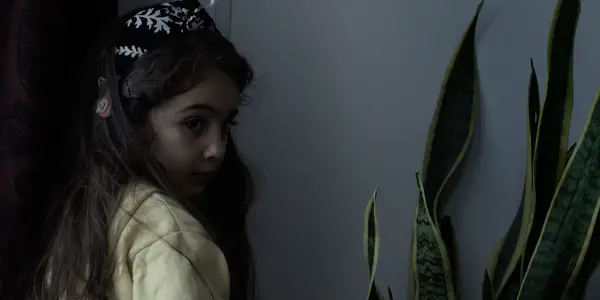
As children, our imaginations of the unknown ran wild. The freedom without the restraint to imagine a multitude of possibilities and realities flourished. Only when we are met with the hard facts of life does that ingenuity become challenged. For one little girl, her imagination of her Grandmother stands on the precipice of reality as she prepares to meet her for the first time. There is a delicate nature to the young girl as she runs around the house preparing her toys in preparation of her grandmother’s arrival, even putting a little barrette in her hair to heighten her appearance. It is clear, she wants not only the attention of her Grandmother when she arrives, but her approval as well.
However, the little girl is surprised the Grandmother that arrives is not the one she has imagined she would be meeting. She is frail, requiring assistance. She does not acknowledge the little girl when she arrives, the young girl’s mother bringing her straight to bed to rest from her trip. There is a void and uncertainty in the nature of the events that have played out differently for the young girl.
Youth contrasted the inevitability of aging, there is an innocence that the young girl and the grandmother retain, each now living in each other’s space, only one fully aware. And even though the Grandmother has not met the expectation, the girl still exudes the immense love she has for her Grandmother, gently caressing her face as she attempts to unite both their worlds. As she slowly and carefully paints her Grandmother’s hair, she recreates the image she has come to know in her mind, fiction meeting reality.
Another World (Esther Maloney)
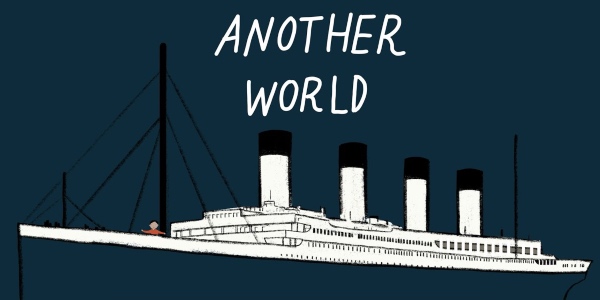
Another Worl, from writer and director Esther Maloney, marries animation and live-action to the poetic threads of observations of a coming-of-age generation and the world they will inherit. Interlaced is an acknowledgment of the hard times children are facing as they look out into the world, their minds trying to understand what is going on around them. Yet, as they grow, there is the hope that they could be the future that creates another world, another way of living.
In a world of hate, misinformation, and greed, the coming of age generation faces the hard tasks of tackling racial inequality, poverty, illness and climate change – just to name a few – and as other generations have added to the “mess” that threatens to collapse around us at any time, there is the hope and the belief that the future can become the powers of change. Mimicking the ship within the short, the earth is the sinking vessel, the children the survivors reaching land to start a new civilization. They wield the power and the technology for change, they can create Another World.
While short in its run time, Another World is effective, reaching into the ever-present realization of the world we are leaving to the children after us. The change between animation and live-action speaks to our environment and our civilization, the world always striving to mature but pulled back into the seemingly childish viewpoints and naivety cartoons have a tendency to encompass. There is a deep reverberating message of hope in the future.
Champagne (Elizabeth Schiffler)

One of the hardest things to do in life is to learn to ask for help. While at times it may be easier than others, admitting the need for help can make us feel at our most vulnerable. It is raw and it is scary, allowing another person into your world, asking for help and understanding. Champagne, from writer and director Elizabeth Schiffler, examines this moment in life for a young chef struggling to maintain her restaurant for her increasing clientele all on her own.
The film introduces us to a young cook as she attempts to satisfy a clientele of aetherial animated spirits. With their otherworldly apparitions frequenting her establishment, the young chef is left thinking only she can deliver what they crave – and that she must do it on her own. Yet as the patrons increase, so does the workload.
Hiring a sous chef, at first, she only allows them confined to the kitchen to manage the dishes. But as time passes, she slowly begins to open herself up to the possibility of help. There is a constant push and pull as she allows the soul chef in, both towards the introduction of clientele, as well as with herself. She has been confined and close for so long, the process starts slow, but becomes an experience of its own.
The blending of animation and live-action heightens the effect of Champagne, giving the film moments of seclusion and vulnerability. There is a mystical sense it emblems as well, giving Champagne’s experience of learning to ask for help that more magical.
Does content like this matter to you?
Become a Member and support film journalism. Unlock access to all of Film Inquiry`s great articles. Join a community of like-minded readers who are passionate about cinema - get access to our private members Network, give back to independent filmmakers, and more.













